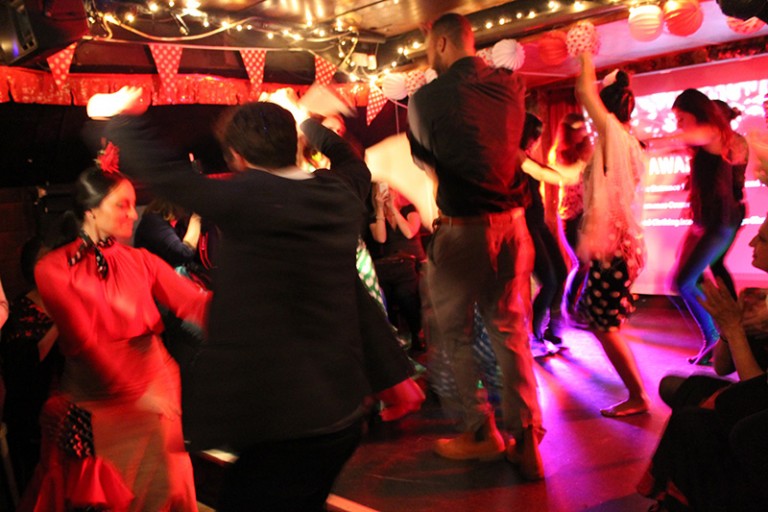
Samba and Slots: The Fusion of Brazilian Music and Casino Entertainment
19 May, 2025In Brazil, music is more than entertainment—it’s a heartbeat, a form of identity, and a national language of joy. Samba, the country’s most iconic sound, captures the passion, rhythm, and soul of a diverse culture. But now, in an era where global gaming markets are expanding and Brazil edges closer to fully legalising casino operations, a new fusion is emerging: samba and slots. This unlikely yet vibrant pairing reflects the broader evolution of entertainment spaces in Brazil, where the rhythmic energy of traditional music is being reimagined inside glitzy casino-style environments.
From themed gaming floors to samba-infused lounge acts, casinos are beginning to incorporate Brazil’s cultural identity into the gaming experience. As this transformation unfolds, a wide range of digital perks, such as casino holdem poker live dealer bonuses, are also gaining popularity, particularly in the online space. These features provide new layers of interaction that appeal to both locals and international visitors, blending music, risk, and reward.
The result is not just a nod to Brazilian culture but a fresh, immersive experience reshaping how gaming is enjoyed across the country. It’s a sign that in Brazil, even the most traditional rhythms can find new life on a modern stage.
The Cultural Power of Samba in Public Spaces
Samba has always lived in communal settings—from the crowded streets of Rio’s Carnival to the intimate roda gatherings in local neighbourhoods. It’s music that invites participation, whether through dance, percussion, or call-and-response vocals. That communal spirit is part of what makes it such a powerful cultural force. It turns any gathering into a celebration, infusing spaces with emotion and movement.
As Brazil explores new legal frameworks for casinos, the entertainment factor becomes crucial. Operators aren’t just thinking about slot machines and roulette—they’re thinking about atmosphere, cultural identity, and emotional resonance. Samba offers an immediate connection to local audiences, one that feels familiar yet elevates the casino space into something uniquely Brazilian. Rather than importing the sterile luxury of Vegas, this emerging model aims to wrap casino experiences in warmth, rhythm, and homegrown soul.
Live Performances, Immersive Lounges, and Branded Venues
One of the most promising developments in this fusion is the rise of themed casino lounges and live performance zones that feature samba acts alongside gaming. Imagine a floor lined with slot machines and blackjack tables, while a live bateria drums out classic samba rhythms nearby. The sounds, the colours, the energy—it’s a sensory blend that few other countries could replicate so naturally.
These hybrid spaces are gaining popularity at hotel resorts and private gaming events, especially in tourist-heavy areas like São Paulo and Rio de Janeiro. They’re designed to appeal not just to hardcore gamblers but to a broader crowd seeking a festive, music-infused evening. For many visitors, it’s not just about winning—it’s about feeling the moment, and samba delivers that atmosphere like no other genre.
Branded collaborations are also taking shape. Some digital casino platforms are experimenting with samba-themed slot games, incorporating traditional instruments, dance animations, and Rio-style visuals into the gaming interface. These games don’t just offer prizes—they tell stories, reinforcing a cultural narrative while keeping players engaged through sound and motion.
Challenges in Balancing Tradition and Commercialisation
Blending samba with Brazil’s expanding casino industry introduces both potential and tension. Samba is more than entertainment; it is a cultural expression with deep roots in Afro-Brazilian history, social identity, and political resistance. Using it purely for commercial value risks undermining its meaning.
To avoid this, developers must approach integration with cultural awareness. Local communities are protective of samba’s legacy, and any effort to incorporate it into gaming venues must prioritise authenticity over aesthetics. Effective strategies are grounded in respect, not superficial branding. Key practices that support meaningful integration include:
- Collaborating with samba schools: Working directly with established schools ensures that performances reflect true traditions and local expertise. These partnerships help casinos build credibility while also supporting important cultural institutions in Brazil’s urban neighbourhoods.
- Hiring professional local musicians: Bringing in skilled artists guarantees quality and authenticity. Regular live performances by trained musicians reinforce cultural integrity and create engaging entertainment that resonates with both Brazilian audiences and international visitors.
- Embedding cultural context in programming: Including information about samba’s history and evolution helps educate visitors. Well-designed events can enhance the gaming experience while also showcasing Brazil’s cultural depth and diversity in a respectful, informative way.
When these principles are applied, casinos can offer entertainment that feels rooted rather than manufactured. The goal should not be to use samba as a marketing gimmick but to create spaces where music, community, and modern gaming coexist responsibly. In doing so, Brazil can expand its casino market while still honouring the heritage that defines its national character.
Follow Sounds and Colours: Facebook / Twitter / Instagram / Mixcloud / Soundcloud / Bandcamp
Subscribe to the Sounds and Colours Newsletter for regular updates, news and competitions bringing the best of Latin American culture direct to your Inbox.

